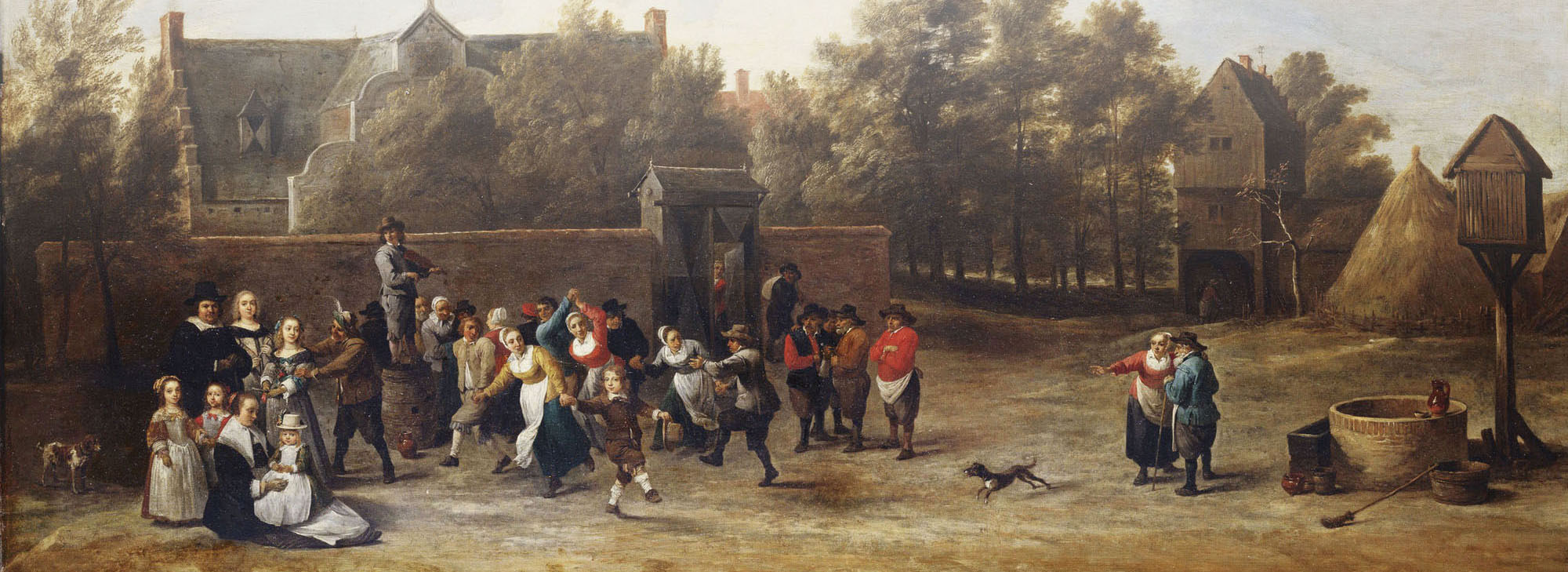CaPer is an ambitious interdisciplinary project exploring how practices of representation and recreation were vital to shaping and sustaining Catholic minority in early modern Protestant England. It comprehensively investigates how Catholics used performing arts, sports, and ceremonies to create communal bonds, negotiate their place in a hostile society, and advance Catholic Reformation in the period between Elizabeth I’s accession to the throne in 1558 and the restoration of the monarchy in 1660.
Early modern Europe was divided by faith. In England, Elizabethan religious policies excluded Catholics from universities and from holding public offices. Mass was forbidden, churches were purged of images, altars, and superstitious practices, and fines were introduced for those not attending their parish churches every Sunday. Anyone charged with assisting missionary priests or proclaiming loyalty to the pope could face confiscation of property, imprisonment, and even capital punishment. Now dwindling and marginalized, the Catholic community nevertheless endured, being sustained by belief, tradition, family bonds, and the efforts of Catholic missionaries educated abroad. CaPer project explores the role of performance culture in defining and sustaining this minority in a hostile society.
The majority of practices that CaPer investigates were associated with leisure. For early modern moralists, Catholic and Protestant alike, recreation was often another word for idleness. But although unchecked entertainment was perceived to provoke sin, moderate and seemly recreation was often essential to forging religious communities and to spreading reformed ideas. Whereas sacraments and worship provided an essential glue for dispersed Catholics in England, theatricals and leisure activities, such as dancing, singing, and hunting, were equally vital to their survival, offering occasions for evangelisation, sociability, and self-presentation. Systematic investigation of Catholic performance culture allows us to pay greater attention to sources routinely overlooked by scholars, as well as to juxtapose and study a wide variety of seemingly ephemeral practices of a single community in a coherent and sustained way. This work is essential if we are to thoroughly understand how religious minorities in Britain and across early modern Europe coped with persecution and social exclusion during the long and global Reformation.
The project has five main objectives:
1. To provide a survey and analysis of all major forms and records of Catholic performance in England between 1558 and 1660.
2. To uncover and understand the role of women in Catholic performance culture, particularly in their capacity as patrons, performers, teachers, and record keepers.
3. To gauge the impact of continental Catholic colleges on performing arts and devotional practices among Catholics in England, considering in particular the role of missionary priests as reformers and conduits of new styles and fashions.
4. To lead the way in systematically advancing our understanding of British Catholic culture, introducing new methodologies and transforming scholarly debates on performance cultures of religious minorities across early modern Europe.
5. To offer a better understanding of how diverse religious communities coexisted in the early modern period and enquire how this knowledge might inform solutions aimed at reducing inequalities and social exclusion in contemporary Europe.
Relying on a variety of archival and literary sources, CaPer will rethink the cultural history of English Catholics, introduce to historiography previously neglected actors and practices, and expand our knowledge of religious coexistence in early modern Europe. While committed to academic excellence, the project also addresses pressing issues of public concern. In Europe today, religious minorities are again facing mounting hostilities and state restrictions. Drawing on historical knowledge, this project strives to shape public opinion, offering a meaningful historical perspective on contemporary issues of religious intolerance and social exclusion. CaPer looks to the past to help addressing Europe’s challenges of the future.
This project has received funding from the European Union’s Horizon 2020 research and innovation programme under the Marie Skłodowska-Curie grant agreement No 101028507

